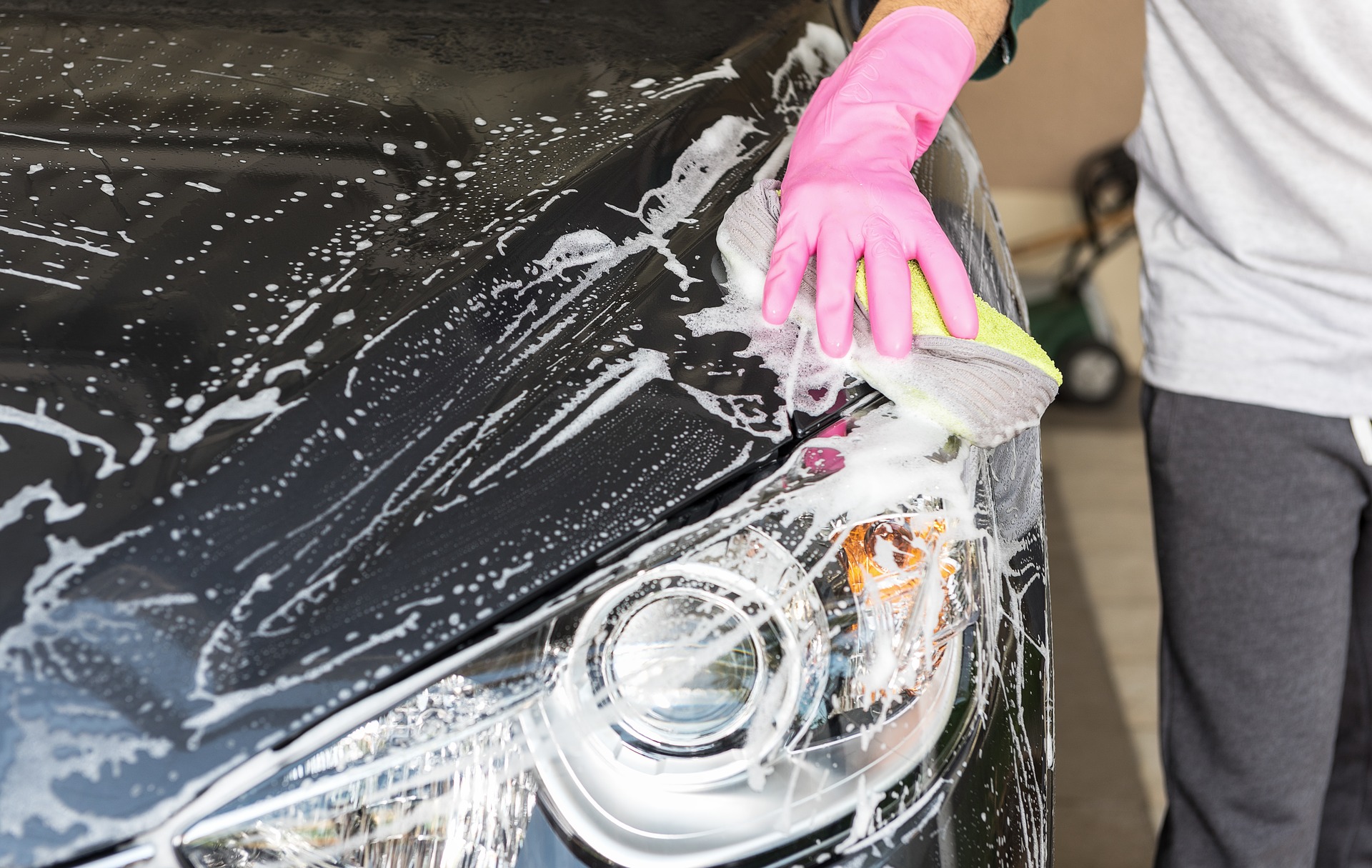How often should you detail your car? The answer might shock you!
The average person spends about 96 hours a year driving, but most of us don’t stop to think about how our cars are doing. We just hop in and go, not paying attention to the dust accumulating on the dashboard or the dirt collecting under our fingernails. And for most people, that’s okay—until their engine starts misbehaving or they notice something leaking from their exhaust pipe. A little preventative maintenance can save you time and money in repairs down the line. So when is it time to take your car into a shop for an inspection?
Here are five signs that indicate it might be time:
1) You haven’t had a professional detailing in a while.
2) Your engine is overheating.
3) You can’t open your trunk or doors.
4) You notice smoke coming from the exhaust pipe.
5) There are warning lights appearing on your dashboard.
With that said, let’s dive into why it’s important to detail your car, tips, and tricks, and how often you should be doing it.
The Importance of Car Detailing
There are a few reasons why it’s important to detail your car regularly.
1) It keeps your car looking new.
2) It protects your car’s finish from the elements.
3) It helps your car run more efficiently.
4) It prevents rust and corrosion.
5) It can increase your car’s resale value.
6) It helps you discover problems with your car before they become bigger issues.
How often should you detail your car? You might already know that it isn’t a good idea to put off detailing for too long because the time will come when it just needs to be done, but it also doesn’t have to be done too often. There are variations of opinions on how frequently you should detail your car, but the majority say it depends on where you live, what kind of car you have, and how often it’s driven.
If You Live In A City Or Urban Area
For those living in urban areas—like cities or suburbs—detail your car every three months. The high levels of pollution, grime, and dirt in the air can take a toll on your car’s finish.
If You Have A Newer Car
If you have a newer car (2-5 years old), detail it every four months. Newer cars are usually made with more delicate finishes that can easily be scratched or marred.
If You Have An Older Car
If you have an older car (6-10 years old), detail it every six months. Older cars usually have more rust and corrosion protection, so they’re not as susceptible to the elements.
If You Drive Your Car A Lot
If you drive your car a lot, detailing it every two months might be a good idea. The more you drive, the more dirt and grime will accumulate on your car’s finish.
Decontamination and Protection Detailing
Having your car detailed includes a decontamination and protection service. This service helps remove any contaminants from your car’s finish, such as tar, sap, bugs, and bird droppings. It also helps protect your car’s finish from the elements with a layer of wax or sealant. This means you won’t have to worry about any of those things damaging your car’s finish for at least six months. Auto detailing experts also clean the interior of your vehicle, which helps protect against any allergens or bacteria.
Tools and Products Used For Detailing
When you take your car to an auto detailing shop, experts typically use high-quality microfiber towels for cleaning and drying your car’s finish. They’ll also use foam pads on their buffers when applying wax or sealant. Having your car detailed also means having it polished, which can help remove light scratches and swirl marks.
Tips For Interior Detailing
If you’re detailing the interior yourself, be sure to vacuum out your car’s floor mats before washing them with gentle soap. Fabric cleaners are typically okay for wiping down leather seats. If you have fabric seat covers on your car’s seats, use upholstery shampoo instead of regular shampoo or dish soap when cleaning them. Also, be careful not to use too much water when cleaning your car’s interior, as this can lead to the growth of mold and mildew.
Don’t Forget To Vacuum Your Car!
Before you wash your car, be sure to vacuum out the inside. This will help reduce how many contaminants end up on your car’s finish. You should also clean the interior as soon as possible after a long road trip to prevent any dirt from scratching or staining your car’s finish.
Conditioning Your Leather
Conditioning your leather seats helps keep them supple, which prevents cracking and reduces noise while driving. Conditioner also protects the leather’s finish from dirt and grime by forming a barrier. Ask your professional detailer about recommended products for conditioning your leather seats.
How Often Should I Wash My Car?

How often you wash your car depends on where you live, what kind of car you have, and how often it’s driven. If you’re living in an area with high levels of pollution or dirt, detail your ride every three months. If you’re living in a more suburban area with less pollution and dirt, detail once every four months. If you drive a lot in your car, detailing every two months might be a good idea.
Exterior Detailing Tips
Before washing your car, use a clay bar to remove contaminants from the surface of your car’s finish. These contaminants include iron particles, tree sap, and bug residue. Some auto detailing shops offer this service for no additional charge.
Wash your car from the top down to prevent any dirt or debris from getting on the clean surfaces. When using a hose to wash your car, use a gentle spray and avoid hitting it directly in the face with high pressure. Don’t forget to clean your car’s wheels and tires! Use a wheel brush and tire cleaner to prevent buildup on these surfaces.
Which Is Better: Hand Wash or Car Wash?
A car wash is typically better for someone who doesn’t have the time to make it to an auto detailing shop. It’s also ideal for those with an old car that isn’t worth any money. However, a hand wash allows you to give more attention to certain parts of your car, such as the engine bay and wheels/tires. It’s important to pay special attention to your car’s engine bay, as it can affect performance. A car wash tends not to clean engine compartments as well, and it could also get water into the engine, which can damage the car.
After washing your car with a soap meant for autos, be sure to rinse off the entire vehicle thoroughly with clean water. Some auto soaps have wax or other additives that are beneficial for preventing oxidation. These substances should always come off when you’re done washing your car.
Waxing Your Car’s Exterior
Waxing your car every three months is a good way to protect the paint and enhance its color. It also helps prevent oxidation and fading. Wax is applied in thin layers and takes about an hour per coat to dry completely. Be sure to apply wax two hours after washing your car, as this will allow any contaminants to settle on the finish.
Applying a car wax can be an arduous task, especially when you’re trying to avoid smudges and streaking. Here’s a trick: After applying the wax, wrap a soft cotton cloth around your index finger and rub it in circles on the area that you just finished. This way, any streaks will come out easily when you buff the surface with a terry cloth towel.
Engine Detailing Tips
If you’re not comfortable detailing your engine, take it to a professional. They will clean the engine bay and all of its components, such as the intake manifold, throttle body, and valve covers. This will help your car run more smoothly and last longer.
Types of Car Waxes
Carnauba Wax is a natural wax taken from the leaves of a Brazilian palm tree, and it produces a deep shine. It’s very time-consuming to apply, but this type of wax typically lasts longer than other types of car wax.
Synthetic Wax offers protection against sun damage while also producing a deep shine on the car’s exterior. This type of wax is very easy to apply, which makes it popular among car enthusiasts.
Liquid Wax can be applied in a spray or with a pad, but it usually lasts only two to three weeks after application. Liquid wax has built-in cleaners that help remove dirt and other debris while also adding shine.
The Final Touches: Polishing and Buffing
The final step in car detailing is polishing. Polishing is a way to remove any swirl marks left from the car wash or hand washing, and it restores a high-gloss finish that makes your car look brand new.
After waxing your car, you can use a polish and buffer to give it an even deeper shine. This will also help remove any light scratches or blemishes on the surface of the paint. Be sure to read the directions carefully before using a buffer, as it’s easy to cause further damage if you’re not familiar with its use.
Between Detail Upkeep and Maintenance Schedules
One of the best ways to keep your car free of damage and scratches is through routine care and maintenance. After you’ve gotten a professional detail, check your owner’s manual for the manufacturer-recommended service schedule. Be sure that you properly maintain recommended services like oil changes and tire rotations. It’s also important to take your car in for detailing every six to twelve months, depending on the level of wear and tear.
Routine maintenance will help keep your car in top condition and looking its best. By following a schedule and using the proper products, you can avoid costly repairs down the road.
Being Smart With Your Detailing Habits
If you want your car to be in great shape for years to come, there are a few things you should avoid doing. Don’t wash your car on a hot day or while it’s still wet from a previous wash. The high temperatures will cause the water to evaporate quickly, which can lead to surface scratches.
Don’t use dish soap or other household cleaners to clean your car. They’re meant for dishes, not cars, and they can damage the paint or wax finish.
Never use an automatic car wash. These machines can cause scratches and swirl marks on the car’s surface.
By following a routine maintenance schedule and using the proper products, you can keep your car looking its best. Detailing your car every six to twelve months will help remove any built-up dirt or debris, and it will also help protect the paint from fading or becoming damaged.
A Clean Car Can Take You Far!
Would you rather give your car the TLC it deserves? Bring it to the professionals today! Here at IR Auto Solutions, we service vehicles in Asheville, NC, and surrounding areas! Check out our site to learn more about our processes, or give us a call +1 828-844-4072 today!
